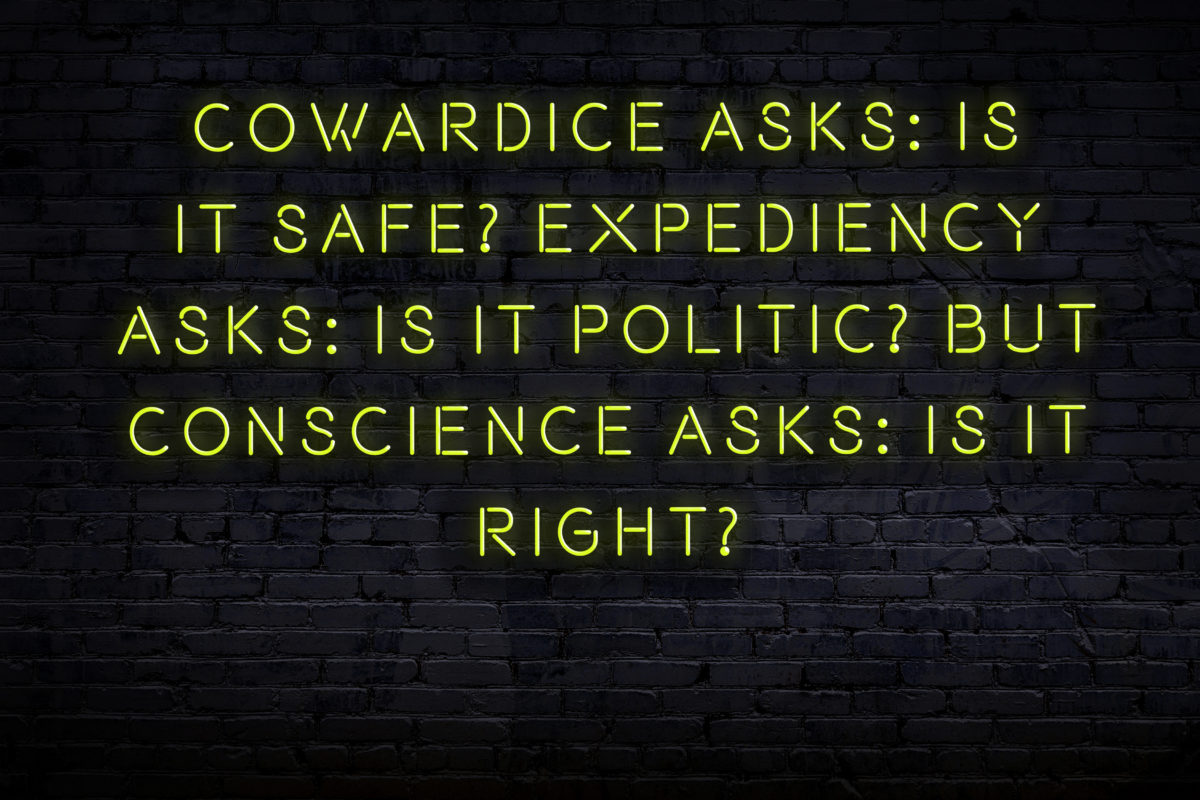At the Stewardship Foundation, our 5th Credo is: We believe… in the sanctity of human life, marriage and sexual morality, and religious freedom and the rights of conscience. There seems no better time in American history to explore these valuable rights.
Rights of Conscience are political rights that protect our ability to do what we believe is morally best. For example, a right of conscience for an individual’s health may include seeking an exemption from mandatory vaccination, or for a physician to refuse to participate in abortion or sex-change surgery.
There are three categories of political rights: (1) prohibited, (2) permitted, and (3) required. In the United States, most activities are permitted, meaning people engage in that activity if they wish. On the other hand, activities like murder or robbery are prohibited, and some activities like driving a car on the right side of the road may be required.

As Americans, we enjoy religious freedom (to practice or not to practice), free speech, freedom to assemble, the right to own a gun, and no political authority can prevent the practice of religion. Of course, we can also choose not to practice religion — both are autonomous rights.
Rights of conscience, however, protect a person from mandatory participation in an activity if the particular activity threatens the their fundamental values. Rights of conscience clauses are typically phrased: “No person shall be required to …”
No doctor should be required to perform an abortion in order to keep his job, but there seems to be a storm coming on the rights of religious mental health providers seeking exemptions with respect to counseling gays and lesbians about marriage.
To learn more about the current federal laws protecting your rights of conscience, we invite you to read the 2019 statement from the US Conference of Catholic Bishops.